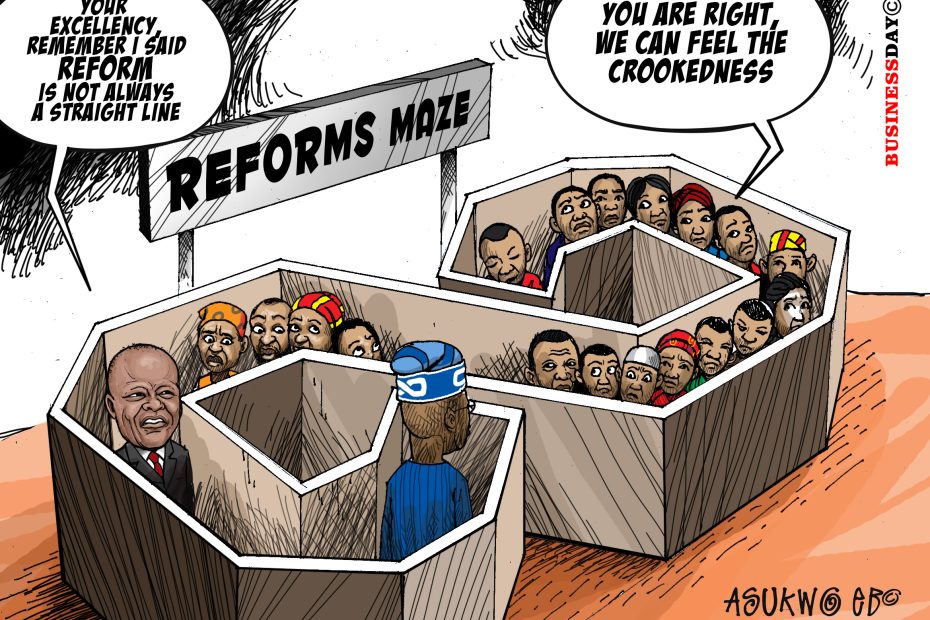Nigeria is slipping off the radar of foreign investors again as the excitement that cheered President Bola Tinubu’s reforms cool.
The naira’s movement against the dollar over the last month has been a good indicator of the recent mood among foreign investors.
A month-long rally into April that saw the naira emerge the world’s best globally fizzled in May, with the currency tumbling to one of the world’s worst performers.
Foreign investors are now sitting on the sidelines until the naira stabilises. The optimism that restored Nigeria within their sights after eight years of unorthodox CBN policy spooked them has run out and they are demanding more.
When the naira will stabilise is quite unclear at the moment and its sharp swings this week did little to provide a clear timeline.
The currency jumped to a one-month high of N1173 on Tuesday, only to fall right back to N1329 the next day (yesterday), closer to Monday’s rate.
The FX volatility has starved the country of much-needed dollars and battered the naira, which is down 67 percent since Tinubu took over last May.
Tinubu has implemented bold reforms to lure foreign investors in his first year as president.
He scrapped costly fuel subsidies, replaced central bank governor Godwin Emefiele with ex-Citibank executive Olayemi Cardoso, cleared a protracted foreign-exchange backlog, and revamped the country’s exchange-rate policies.
The reforms initially excited foreign investors, leading them to flock back to Nigeria. But they have since hit the brakes.
Tellimer Ltd. data shows investor inflows into the forex market fell nearly 20% in April to a daily average of $200 million, dropping further to $180 million in the first three weeks of May.
The total volume of foreign portfolio inflows into the stock market also declined to N42.58 billion in April from N52.66 billion in March.
The outlook for May is much lower as an ongoing banking recapitalisation exercise spooks investment in shares of Nigerian banks.
Analysts at Coronation Merchant Bank said that the local currency bond market is not as attractive to foreign investors anymore, with the inflation rate rising to 33.69 percent while market rates have failed to adjust accordingly.
“While a 1-year T-bill yield at 25.07% is easily double anything achievable last year, it still falls miserably short of the inflation rate at 33.69%, so the inflation-adjusted return remains negative. FGN bond yields are generally somewhat lower than 1-year T-bill yields,” the Coronation Merchant bank analysts said.
Foreign investors are also concerned about repatriation risks and would like to have that resolved, analysts say.
“Foreign investors who had been stuck in the market exited immediately they could. Now, they are concerned about repatriation risks and consistency in the policy implementation,” a Lagos-based investment analyst told BusinessDay.
“As long as they’re able to retrieve their investments, FPIs will improve,” the analyst said.
While Nigeria offers higher equity valuations and better yields, emerging and frontier market peers like South Africa, Egypt, Kenya, Turkey and Pakistan offer less repatriation risks and a more advanced policy course correction and higher credibility that policies will be sustained, according to Tellimer.
